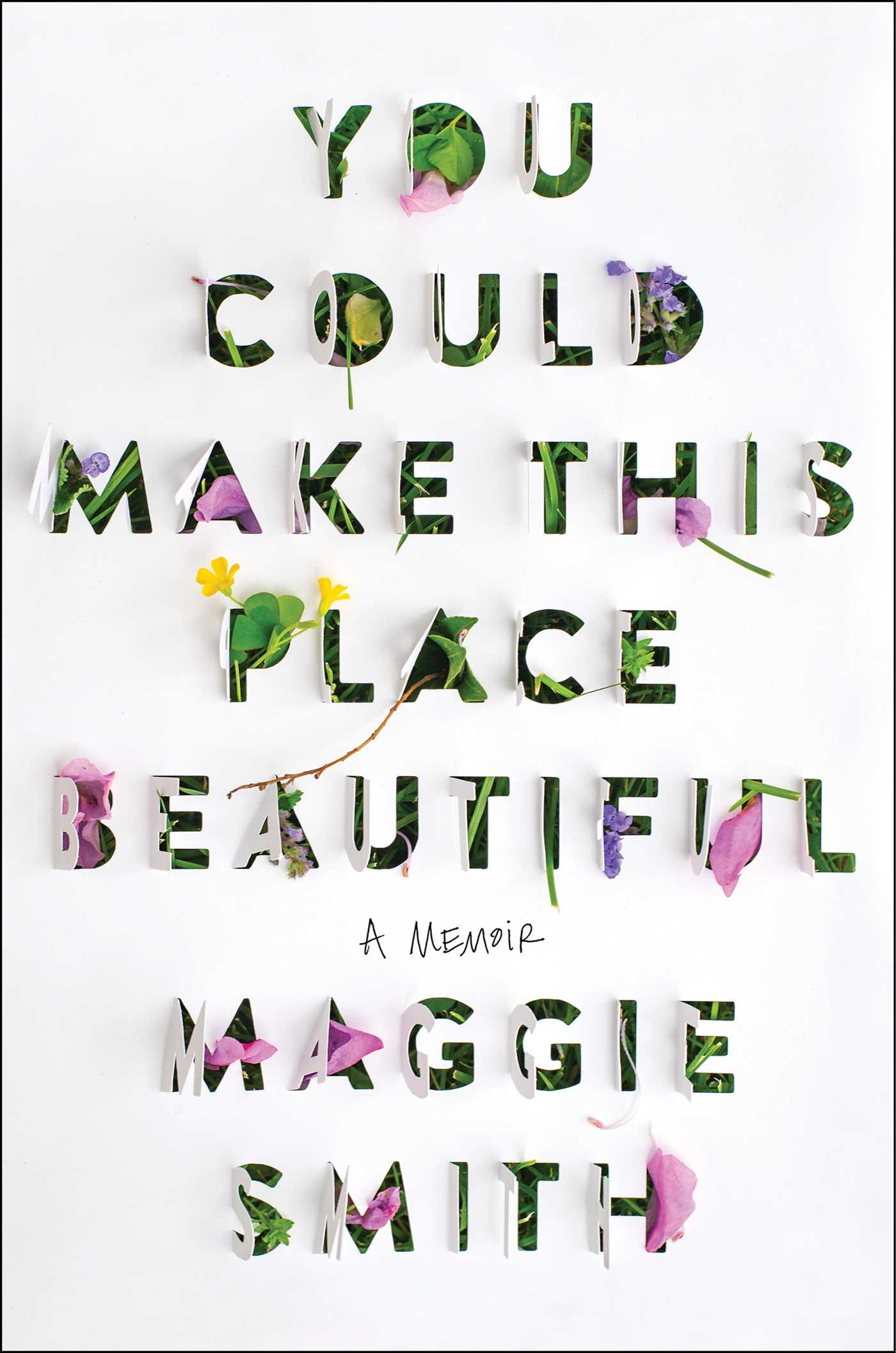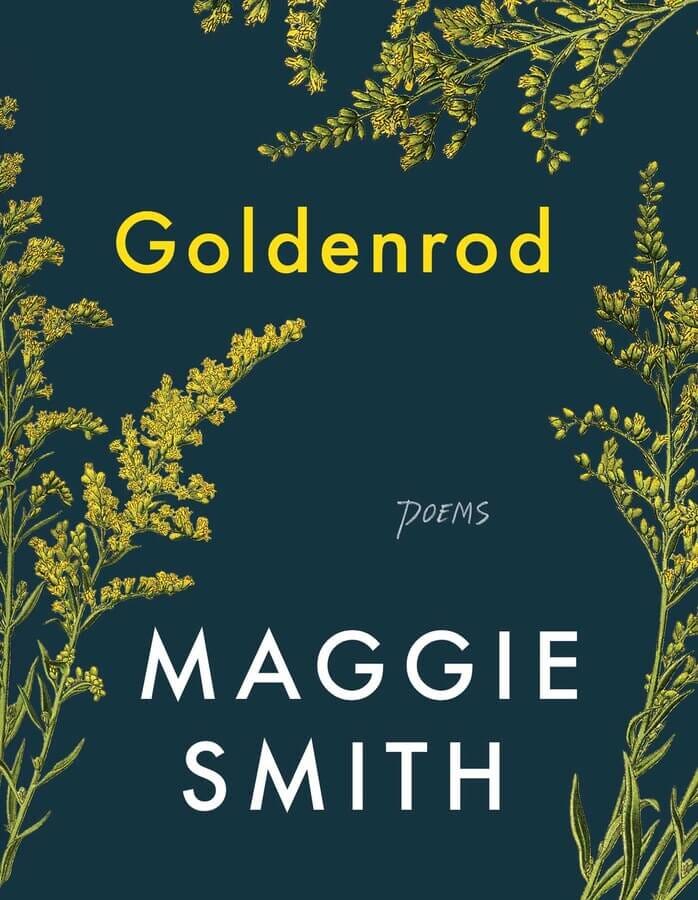Maggie Smith: On following your intuition and tricking your kids to like what you like
Advice from a poet
Meet our next creator, Maggie Smith:
Maggie Smith: 46
Kids: Violet, 14; Rhett, 10
Vocation: Poet and writer
Location: Columbus, Ohio
Links: For Dear Life with Maggie Smith, website
Maggie Smith, not the dame, the other one, as she likes to say, is the rare poet who has broken through to the mainstream. In 2016, she had a poem go viral. You don’t hear that often, a poem going viral. Poetry used to fill a hole in our lives, giving us an understanding of people and the world and ourselves, that we’ve since filled up with other, lesser things. But if you’ve read Maggie’s poem “Good Bones,” then you understand why when someone read it, they had to share it. It speaks to something that no form of lesser art, no TikTok or reality show, can. If you haven’t come across it, you’ll want to click here and read it.
From the final line of that poem comes the title of Maggie’s recently published memoir, You Could Make This Place Beautiful, which follows her life over the course of her marriage ending and her career flourishing, two things that are, unfortunately, not completely unrelated.

So much of Maggie’s work is rooted in her family and home life in Columbus, Ohio. She’s spent her life in Ohio and now lives in the town where she grew up. She has Sunday dinners with her parents and sisters’ families. When she goes on book tours, she drops the kids at their grandparents’ house. In the summer, the neighborhood kids roam free, hopping from house to house, entertaining themselves. This dreamy situation was not by initial design. She kept expecting to leave, but events, like an MFA program that offered her a full ride, seemed to conspire to keep her where she was.
“My decision-making was always fairly practical or I think in service of who I know myself to be and what I know my needs are as a person. And so living here, I don’t think it’s been a detriment to my writing, mostly because I think it’s been really positive for me as a person. And however I can take care of myself as a person also takes care of the writer in me.”
It seems to me like Maggie has found her inevitable place. The poet Robinson Jeffers coined that phrase when he laid eyes on Carmel, California, his future home. “When the stagecoach topped the hill from Monterey,” he wrote, “and we looked down through pines and sea-fogs on Carmel Bay, it was evident that we had come without knowing it to our inevitable place.” And it was that place that inspired so much of his poetry.
I’ve been in search of my own inevitable place for my entire life. And I married someone who has the same wanderlust, so we take great joy in bouncing from place to place together, although we’ve slowed our pace since the children came along. But I’ve always imagined that, in the vein of Jeffers, I will one day arrive somewhere and know that I am where I am supposed to be, and it will be somewhere that is rife with creative inspiration.
For those of us who don’t feel like we are where we’re destined to be and who also have the luxury to be able to move around, what starts out as a thrilling adventure becomes encumbered once children are in tow. Our conversations now involve questions like, “But how important is stability?” and “Will they turn out to be psychopaths if they don’t have a community?” and “Will they not know the joy of a lifelong friendship?” Our location has become less about destiny and a creative font than about where in this world, which is “at least half terrible” as Maggie says in “Good Bones,” is the healthiest, safest, most open-minded place to grow a human.
But I also know that we can’t make it all about the kids. At this stage, with the kids still young, our family is like a weird alien life form of connected organisms, where if one element is unhappy, we are all unhappy. And if we’re all unhappy, it’s really hard for anything of value to be produced.
In an attempt to keep the alien happy, I still have grand schemes always brewing of travel and adventure (and some will surely come to fruition during their childhoods), but I also know that, at times, we’ll have to stay put. In those moments, I’ll turn to Maggie’s insight for guidance: how if you walk through the world as a poet, and take the time to see things from your children’s perspectives, an old place can seem new again. And there is always poetry to fill the holes that compromise can create.
Now, Maggie, in her own words…
On not writing for one full year postpartum:
I wasn’t thinking about writing as much as I was thinking about the daily stress of parenting with untreated, undiagnosed postpartum and having a colicky, non-sleeping, acid-reflux, dairy-sensitive baby. It was truly awful. I remember thinking, “Where is my bundle of joy?” I had always wanted kids. I was the neighborhood babysitter from age 11 until I went away to college. I was the oldest of three daughters. So I think I had an unrealistic or slightly naive idea of what it would be like to bring my own child home from the hospital. The first three months, in particular, were terrible. And no one really tells you that. And why don’t more people talk about how, for a lot of people, the first few months are really, really hard. Everyone is sleep deprived. Whether your kid nurses well or doesn’t or has reflux or doesn’t, and whether you have postpartum or you don’t, you’re still not sleeping, and you have been made a service provider for someone who needs you around the clock in a really physical way.
I don’t think I was thinking about poetry at that point. I think it was such a secondary concern or tertiary compared to everything that was going on with my child’s physical health and my mental health. I felt very far away from the person I was before who could go to the place I needed to go to write poems. I didn’t have that kind of headspace available to me for a really long time. Most of my daily energy and thinking was really focused on how do I get through this and not on how do I create things.
On kids knocking us out of complacency:
My kids give me so much increased perspective. They help me see things, not necessarily in a new way, but in their way, which is to say, I live in the same place I’ve lived for a long time and I do the same walks every day. And it’s really easy for me, even as a poet and someone who is sensitive to the environment and sensory experience and slight changes to become complacent and kind of tune out and not see the little things. But when you’re walking with a four-year-old or a six-year-old, they are noticing bird songs and the shapes of flowers and picking up acorns—in part because they’re smaller and they’re closer to the ground, but in part because everything is new to them. So all the stuff that’s old news to us is new news, at least for the first few years, to them. And I think that’s a gift that we get to see the world through their eyes for a while if we tune into that.

On intuition guiding writing and parenting:
We are sort of trained away from our own gut instinct. And it’s so important. Like if someone gives you, what my daughter would call, a bad vibe, that’s real. It doesn’t mean they’re a bad person, right? It might just mean that you’re not comfortable with them. And trusting your instincts is part of how we keep ourselves safe in the world.
When I’m writing, if I get excited about going in a particular direction with a piece, I want to follow that. I’m always telling my students to follow the good writing, follow the exciting writing. Whatever idea is knocking loudest, that’s the idea you listen to. If you’re not listening, that’s a problem because you’re gonna miss so much stuff. When ideas show up, when a poem comes knocking or when a new book idea or some metaphor presents itself, if you’re busy or looking at your phone or dismissing it, that’s a really negative space to be in.
I tell people so much of my work involves doing what looks like nothing to most people, which is like sitting and not even writing. I might not have a pen in my hand, I might be looking into the middle distance or taking a walk, but I have my antenna up, and I’m sort of waiting. That kind of attunement and openness is really, really important to the creative process.
Intuition is also really important to my parenting. I am really attuned to the sort of disturbances and energy with my kids. So it’s different if someone says they’re fine, but you can tell they’re not. Or if someone has a different energy when they come in the door from school or feels a little different in that dark, quiet time before bed, and they’re not offering something to you, but you can tell that there’s something there. I’m always wanting to listen to that and honor that and sort of use it as an invitation. So I ask a question or have a conversation instead of just speeding by it.

On teaching kids to move through the world as poets:
It’s funny, but I didn’t read a lot of poems to my kids, and I didn’t expose them to a lot of poetry. I think in part because they knew it was my job, and I know that the fastest way to make a kid not like something is to make it really important to you that they like it, right? So if I was a swimmer and I really wanted my kid to be a swimmer, you have to not even bring it up and let them think that it was their idea because otherwise, it’s so uncool. So with my kids, we read Shel Silverstein, but most of what we read was not poetry because I came at it from the perspective of, I want to teach them to sort of move in the world and think and see and hear like poets, not necessarily to want to write poetry or even want to read it.
So we would go for nature walks, and I’d be like, “What does that flower look like to you?” Or, “If the sun could make a sound, what would it be?” Or, “What does that wind feel like on your skin?” Or, “If that were an animal, what animal would it be?” So trying to encourage imaginative and metaphorical thinking with them was more important to me than exposing them to poetry. And I figured they’d get there on their own. And sure enough, my daughter likes it, but my son really likes it, and it has nothing to do with me. They’re giving it to him in school. And then I get to have a conversation with him about it. When he gets home from school, I kind of give him a peek behind the curtain and say, “Look at this word choice.” Or, “Look what they did here.” Or, “Listen, this is the meter.” So I’ll give him the inside scoop. But he has to like it on his own first, or I’m forcing it on him.
Thanks for sharing your story, Maggie!
*Interview has been edited for length and clarity.








Kim - I'm a fellow Beacon, NY mom (and artist - actor/writer here!) and I wanted to thank you for creating this series. I've been devouring "mom lit" in an attempt to work through becoming a new mom to two babies during a pandemic. Your substack has been a welcome addition. Getting to hear from brilliant creator mothers has made me feel a lot less alone in the struggle. Thank you! <3